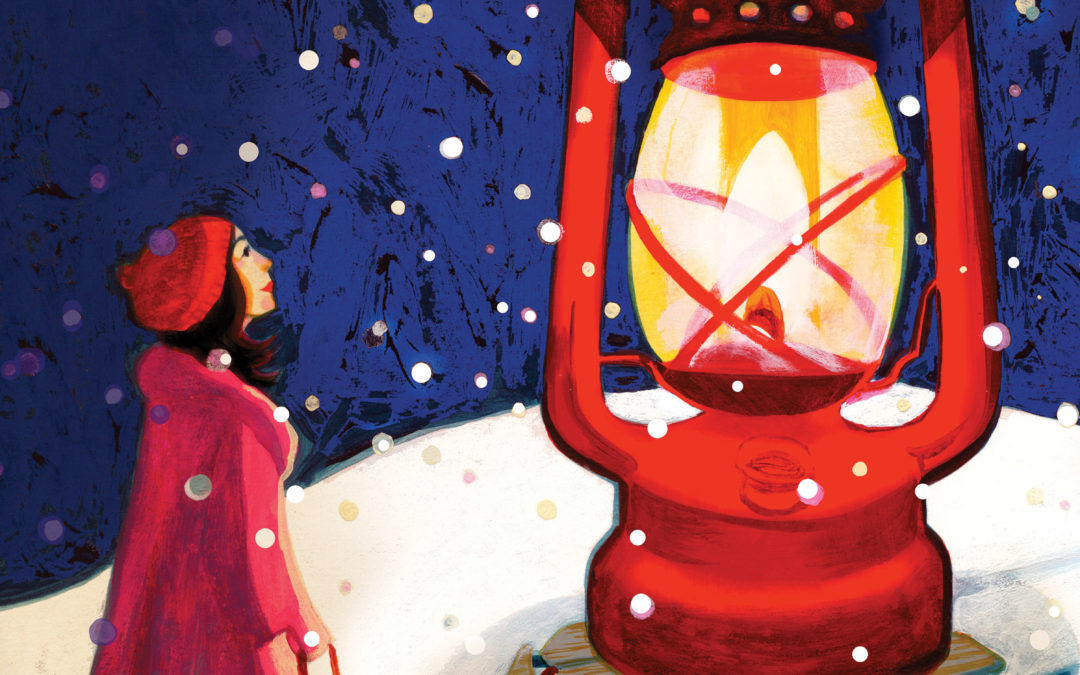—by Sarah Carson
I was thinking about this issue of Gather the other night when I pulled into the copy store parking lot.
My to-do list was yards long, and I’d already called the store twice to beg them to help me meet my deadline. “Fear not,” I told myself, as I unbuckled my seatbelt and made my way to the door of the shop.
Inside it was easy to see why I’d needed to call. Two overwhelmed employees were racing to appease a long line of customers.
I watched a young woman answer the ringing telephone, apologize to whoever was on the other line, and I prayed another silent “Fear not” for her.
She was poised and polite, despite obvious frustration. She turned to a woman waiting on an order of postcards. “My cutting machine is broken. I have to cut these by hand. It will take a while,” she said.
“It’s OK,” the woman responded patiently. “I’ll cut them at home.” Fear not, the woman implied. I understand.
We’ve all been on both sides of the counter—especially at Christmas. Whether we’re holiday shopping for loved ones, preparing meals, or otherwise doing our best to make the season special, fears and frustrations abound.
Some fears are small: Will our loved ones like the gifts we’ve bought? Will we run out of mashed potatoes? Others are larger: fear of a diagnosis, fear of conflict, fear of being alone.
“Knowing that fear is a normal part of life and not outside the experience of God’s people can help us deal with it in a healthy way,” writes Katie Hines-Shah in this year’s Advent devotional (p. 24). “That Christmas comes amid our struggles shows the extent to which God goes to bring us light and hope.”
This issue’s authors challenge us to see Christmas as a reminder that we live in a world in need of love and mercy. If we have plenty to give, the Gospel implores us to share it. “Just cultivate your sense of kindness, humility and justice. When you
reach deep within, you’ll find what you have to give,” writes Susan Sparks (p. 14). And if we are in need of hope, there is good
news: It’s coming. “Fear not,” the angels tell us.
As Venice R. Williams shares (p. 17), following Christ “means you and I at times must serve as small
cradles of hope and compassion, welcoming tables where others may come and nibble on our faith.”
Cradles of hope abounded in the copy store that day. Despite plenty of reasons to be frustrated, the patrons were kind. The employees were patient and helpful.
I had almost reached the front of the line when I noticed Christ’s presence again. A woman to my left was waiting to use the copier. Her pregnant belly was round and heavy, and she was wiping away tears. Suddenly customers began to surround
her, rubbing her back, whispering encouragement.
On the counter in front of her was a homemade sign that read “Missing” and several photos of a teenage girl.
“We live in a fallen world where bad things happen,” Hines-Shah writes. “War and famine, violence and accidents, disease and depression, poverty and loneliness and death are parts of human life.”
The promise of Christmas is not that scary things won’t happen. The promise is that a Savior is coming who will teach us to be light unto one another.
“Fear not,” the Christmas story tells us. There is much to fear, but you are not alone.
Sarah Carson is associate editor of Gather.
This article is from the December 2018 issue of Gather magazine. To read more like it, subscribe to Gather.



beautiful, thanks for this little slip of grace in my day.
So wonderful, Sarah! Thank you.
This issue is great, and I have enjoyed reading and preparing for our Bible study in December.